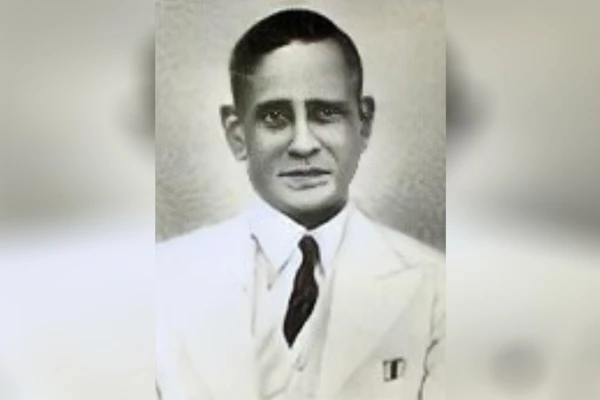Phanindra Nath Ghosh emerged as a shining luminary among India’s freedom fighters.
About Phanindra Nath Ghosh:
Early Life:
- He was born on 20 March 1918, in Serampore within the Hooghly district of West Bengal, he was the son of Charuchandra Ghosh.
- During his student years, he came in contact with freedom fighters from the Hooghly including, Jatindra Nath Lahiri, Amarendra Nath Chattopadhyay, and Panchu Gopal Bhaduri.
Part in Freedom Struggle:
- He joined the Yugantar revolutionary party alongside J.N. Lahiri, and became an active member of the “Gupt Samity” in Serampore.
- Ghosh motivated the youth to embrace physical fitness, exercise, shooting, and self-defense.
- His leadership steered the revolutionary movement across the Hooghly district.
- However, his activities attracted the attention of the British police, resulting in his arrest and subsequent imprisonment in Hooghly jail.
- Following his release, he briefly went underground in Arambag before resuming revolutionary activities in Serampore.
- He played a pivotal role when the Quit India movement ignited across India in 1942, deeply committed to Gandhiji’s philosophy.
- He actively participated in protests, processions, strikes, and boycotts within the Hooghly district.
- On 18 December 1942, while leading an anti-British procession, he was apprehended by the police and incarcerated in Alipore Central jail, where he endured severe torture.
- He was released in April 1944 after which he continued his anti-British endeavours.
Role Post India’s Independence:
- When J.N. Lahiri, a renowned revolutionary, established the Swadeshi enterprise “Serampore Belting Works Pvt Ltd” in Serampore, he participated in this venture.
- Recognizing his immense contribution as a freedom fighter, the Government of India honoured him with a Copper Plate in 1972.
- Phanindra Nath Ghosh passed away in 1992.
Note: He is different from Phanindra Nath Ghosh who became a government approver in the Bhagat Singh case in 1929 and revealed secrets of the Hindustan Socialist Republican Association (HSRA).
Ref:Source



